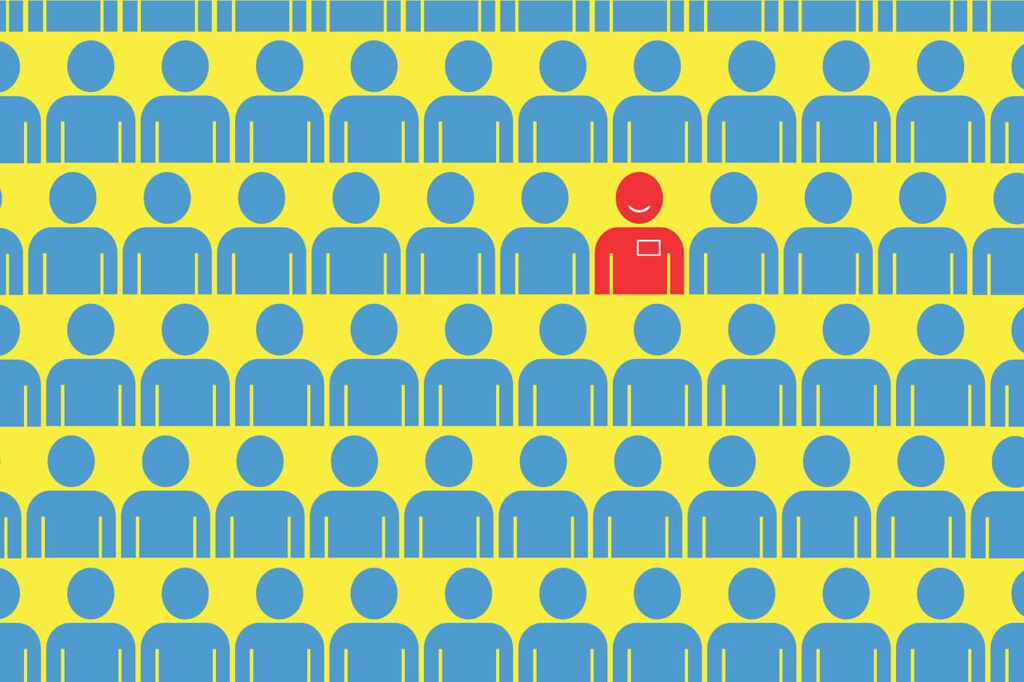One of those lifelong journey questions is, “What is my purpose?” On extremely frustrating days, who hasn’t asked, “Why in the world am I even here?” Maybe you’ve perused a lot of social media and started sizing up your appearance to others’. Maybe you know the “perfect” family and wish you could have their blissful existence.
The act of comparing yourself to others is called the social comparison theory. Psychologist Leon Festinger coined the phrase that explains how people naturally have the desire to evaluate themselves, often in comparison to others. Humans judge other humans, perhaps most especially about themselves (perhaps even if they are unaware of doing so and act out in response.) One way we judge ourselves is through social comparison.
According to Kendra Cherry’s “Social Comparison Theory in Psychology,” there are two kinds of social comparison:
- Upward social comparison: when we compare ourselves with those who we believe are better than us. These upward comparisons often focus on the desire to improve our current level of ability. We might compare ourselves to someone better off and look for ways that we can also achieve similar results.
- Downward social comparison: when we compare themselves to others who are worse off than ourselves. Such downward comparisons are often centered on making ourselves feel better about our abilities. We might not be great at something, but at least we are better off than someone else.”[i]
Interestingly, another of Festinger’s theories revolves around situations that involve resolving conflicting attitudes, beliefs or behaviors. Obviously, comparing ourselves to others focuses on how to make ourselves feel better. The cognitive dissonance theory states that we hold many cognitions about the world and ourselves; when they clash, a discrepancy is evoked, resulting in a state of tension known as cognitive dissonance.[ii] This uncomfortable feeling, needing to be resolved (the principle of cognitive consistency) means a change will occur in one of the attitudes, beliefs or behaviors.
Festinger suggests that a change in the attitude, behavior or belief can resolve the dissonance. For example, say that you are (socially) comparing your weight to others’ and decide to change your eating habits…then you get stressed out and, knowing that you shouldn’t, grab a pint of ice cream from the freezer. Festinger says this mode of dissonance reduction is often difficult for people to change well-learned behavioral responses.
His second method of mentally attempting to reduce dissonance is to find new information that becomes more important when thinking about the conflicting beliefs. For example, knowing that eating the entire pint of ice cream causes dissonance if a person knows it is wrong and does it anyways. However, if some different information allows you to justify your behavior (This ice cream has dark chocolate and THAT is healthy!), the dissonance may lessen.
Festinger’s final way to reduce dissonance is to reduce the importance of the cognitions[iii] (beliefs, attitudes). So after you’ve eaten the pint…you convince yourself that one pint won’t kill you, that you just need to destress, that you’ll figure out a different way to destress next time…any way to decrease the importance of the dissonant behavior and feel better about what you’ve done.
Festinger’s theories cuts to the core of why you do what you do when you compare yourself to others. How does your social comparing influence your beliefs about yourself and others? When you compare, does it positively motivate you or do you seek to find solace in your freezer? Festinger does not state that his “modes of dissonance reduction” provide a long-term solution. He only says that people who are aware that they feel internal conflict will try to fix it, and may use drastic measures to do so. Handling the effects of negative social comparison and cognitive dissonance requires a lot of effort and awareness to make changes and adaptions to truly change your life.
[i] Social Comparison Theory in Psychology, by Kendra Cherry, verywell.com.
[ii] Simplepsychology.com.
[iii] Simplepsychology.com.



